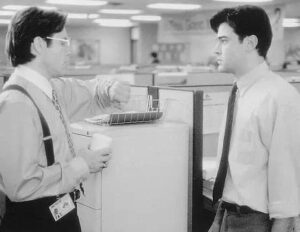
How Running Helped Me Beat Procrastination and Pass the P.E. Exam
During the summer before my senior year of high school, I spent my evenings running. While most of my friends were getting into trouble, I tackled a nightly 4-mile route, rewarding myself with ice cream afterward. One evening, as I struggled up the biggest hill on my route, a classmate drove by, rolled down his window, and shouted, “Hey man, why are you running?” Caught off guard, I replied, “I don’t know,” between labored breaths. He sped away, but the question stayed with me. This experience made me ponder how to beat procrastination and stay focused on my goals.
Neither guilt-free dessert nor preparing for the basketball season seemed like enough reason. Maybe I ran for the feeling of accomplishment or as a quiet rebellion against peers experimenting with substances. Perhaps I sensed that my addictive personality needed a healthier outlet. Regardless of the reason, I kept running. By graduation, I had completed a half marathon and carried my running habit into college.
The First Marathon I Never Ran
Encouraged by my fitness, I decided to train for a full marathon. I didn’t tell anyone or register but planned meticulously. I researched, mapped out a 16-week schedule, and posted it prominently above my computer.
Then, unexpectedly, I stopped running entirely. I wasn’t injured, sick, or busy with schoolwork. I just didn’t run. Missing the first workout led to missing the second. Soon, I felt behind, and the schedule became overwhelming.
Endurance athletes know it’s better to address problems early in training when workouts are manageable. Falling behind meant I couldn’t catch up without risking burnout or injury. This experience taught me an important lesson: planning alone isn’t enough.
The Boss and the Employee
Inside each of us are two characters: the Boss and the Employee. A good working relationship between them is critical. Just as managers can’t be tyrants and employees can’t procrastinate endlessly, our inner Boss and Employee must cooperate.
When these roles clash, progress halts. The Boss makes ambitious plans, while the Employee resists, preferring short-term gratification. Achieving balance requires understanding and negotiating with both sides. When aligned, they can work together effectively, creating a sense of ownership and accountability for what you achieve.
Applying This to the P.E. Exam
To pass the P.E. exam, balance planning and execution. Are you spending too much time making plans and tracking progress without tackling enough problems? Or are you avoiding studying entirely? If the workload feels overwhelming, address it head-on instead of procrastinating.
Knowing why you’re pursuing your P.E. license is vital. Do you want career advancement, personal growth, or increased credibility? A clear “Why” will sustain your motivation when the going gets tough and enable you to beat procrastination.
Know Your Why
Success requires a solid plan, the right resources, and hard work. However, even these won’t guarantee results without a compelling reason. Vague motivations like “It’d be nice to have a P.E. license” won’t sustain you during the long hours of study.
When I failed to train for my first marathon, it wasn’t due to lack of planning or effort. It was because my “Why” wasn’t strong enough. Later, I succeeded because I knew I wanted to push my limits and inspire personal growth.
Make Success Inevitable
First, apply for the exam. Completing the application makes the process real and compels you to commit fully. Knowing the test date will provide focus and accountability.
Second, make your goal public. Tell friends, family, and colleagues. This creates accountability and ensures you’ll have support when needed. Whether it’s a friend explaining a concept, a partner managing household tasks, or a parent helping with childcare, their assistance will make a difference.
Lessons from a Marathon
Six years after my failed attempt, I completed the New York City Marathon. My training plan wasn’t perfect, and I occasionally skipped workouts. However, I avoided consecutive misses and stayed flexible. I had a clear “Why,” registered early, and built a support network that made quitting impossible.
These strategies—knowing your “Why,” committing publicly, and balancing flexibility with discipline—helped me pass the P.E. exam. They can help you too.
Final Thoughts
As you prepare for the P.E. exam, draw on your past successes for inspiration. Beyond professional credentials, this journey can be a stepping stone in your personal growth.


I want to become registered because it is really important to me. I have learned that proper preparation is the key to success. I plan to register for the exam in the coming days. I want to get deep into study mode and have all my resources in hand. I ordered 3 study guides, the Six Minute Problems study guide, the PPI HVAC & Refrigeration Practice Exam (40 problems) and your HVAC & Refrigeration Practice Problems study guide. These study guides in conjunction with all the videos (Daily Insights) and others are a great compliments to each other. I also plan to invest in the full bundle in the coming days. Since I have been out of school for a long time I don’t want to leave any stone unturned. The only book I have not received is your practice problems study guide. I also wanted to know why the all of the daily insights are available to me. I was breezing through those and they are very helpful and then I came to appoint where it says some are not available yet. They are very helpful to someone like me. This is also true for some of the video practice problems. If these were always available it would give me great flexibility in my study program. Thanks Randy
Hi Randy,
Awesome to hear you are gearing up for the study process. It’s a big undertaking for sure and you have the right attitude about the importance of preparation!
To answer your question about the Daily Insights, the full set of videos is available instantly inside the HVAC Full Access Bundle (no waiting).
Looking forward to working with you soon!
Dan